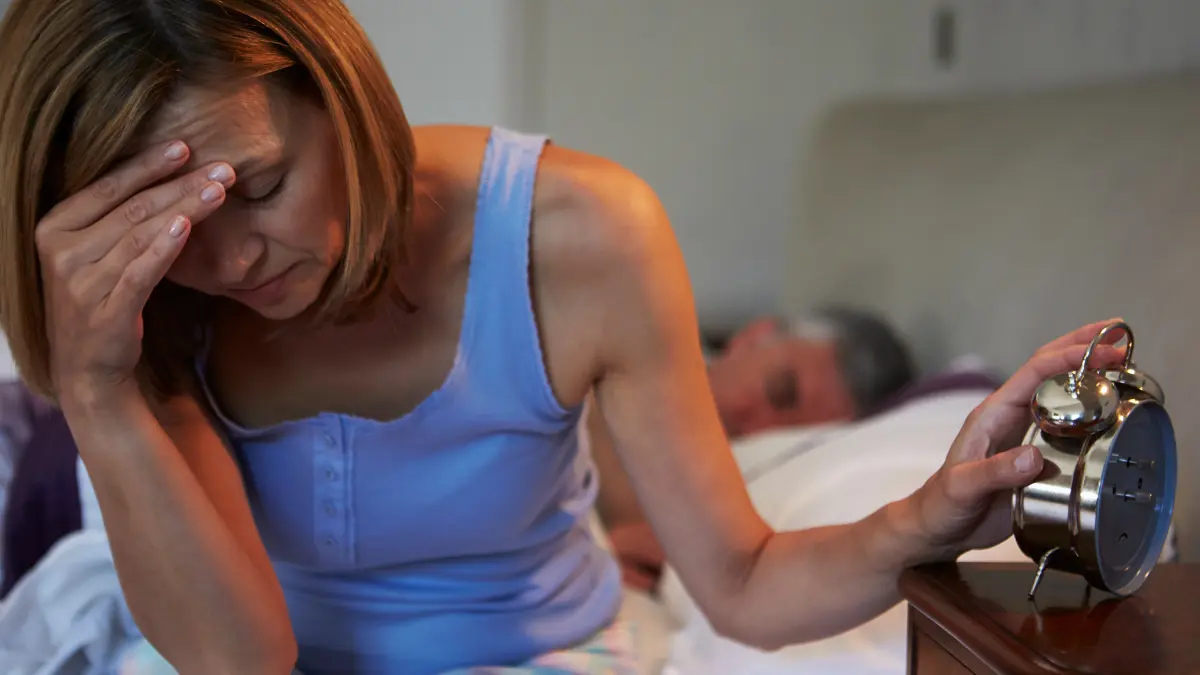Exploring Female Ejaculation: Can you squirt after Menopause?
Squirting is the release of fluid during sexual pleasure and has been a topic of curiosity.
When it comes to Menopause, many women wonder if squirting is still possible.
The good news is that squirting can still occur after Menopause because Menopause itself doesn’t directly impact the ability to squirt.
However, changes accompanying Menopause, such as vaginal dryness, might indirectly affect the likelihood of squirting.
As per a study by the National Center of Biotechnology and Information, 40 to 55% of women face low libido during Menopause.
In this article, we will explore the link between squirting and Menopause to clarify this topic.
Moreover, we will also answer your question: “Can you squirt after Menopause?”.
Understanding squirting
Squirting involves fluid release during sexual activity and is a natural occurrence that can enhance sexual pleasure.
While not all women experience it, squirting is a normal and enjoyable aspect of sexuality for those who do.
Exploring the topic openly can help dispel myths and foster a better understanding of this pleasurable experience.
How Menopause affects squirting

Menopause can lead to a decrease in natural lubrication and vaginal dryness due to hormonal changes.
These changes can make sexual activity uncomfortable and affect the ability to squirt.
Vaginal dryness, thinning, and inflammation may make reaching the level of arousal required for squirting more challenging.
These changes are also known as Vaginal atrophy.
However, you can still squirt, yet the occurrence, intensity, and timing might differ for each person.
Also, mood changes, stress, anxiety, and depression during and after Menopause can lead to low libido.
However, it’s important to remember that individual experiences vary.
With the proper techniques and support, women can still enjoy pleasurable sexual experiences after Menopause.
Effective communication, lubricants, and other strategies can help address and mitigate the impact of these changes.
You can also try using different techniques like gentle pressure, circular motions, and vibrators to find what suits you best.
Menopause and hormonal changes
Menopause marks the natural phase in a woman’s life when hormonal shifts lead to the cessation of menstrual cycles.
During Menopause, there is a decline in the levels of Estrogen and Progesterone, leading to various physical and emotional transformations.
These hormonal shifts can result in symptoms such as hot flashes, vaginal dryness, and mood swings which may impact sexual experiences.
The decrease in Estrogen can cause vaginal dryness, potentially making intercourse uncomfortable and affecting sexual desire.
However, it’s important to note that Menopause doesn’t mean the end of satisfying sexual experiences.
There are various ways to manage and overcome these challenges.
Managing vaginal dryness and enhancing pleasure
You can manage symptoms of Menopause and enhance your sexual life.
Following are some of the ways to get your sexual life back on track:
Lubricants and moisturizers
Over-the-counter lubricants can help alleviate vaginal dryness, making sexual activity more comfortable.
Vaginal moisturizers can also provide long-lasting moisture.
Hormone therapy
For some women, hormone therapy may be an option to manage menopausal symptoms like vaginal dryness and decreased libido.
As hormone therapy primarily focuses on increasing the Estrogen levels that your body no longer makes after Menopause.
It’s essential to consult with your healthcare provider to understand the potential benefits and risks.
Pelvic floor exercises
Engaging in pelvic floor exercises like Kegels can strengthen pelvic floor muscles and enhance sexual pleasure.
It may even increase the likelihood of squirting.
Open communication

Talking openly with your partner about your desires and concerns can lead to a more satisfying sexual relationship.
Your partner’s understanding of the changes you’re going through can make a positive difference.
Regular sexual activity
Engage in regular sexual activity, whether with a partner or through self-stimulation.
This can help improve your vaginal health and increase sexual desire.
Conclusion
In conclusion, squirting after Menopause is indeed possible.
Menopause itself does not directly impact the ability to experience squirting.
However, changes accompanying Menopause, such as vaginal dryness, may indirectly affect the likelihood of squirting by making sexual arousal more challenging.
Understanding the natural process of Menopause and its potential impact on sexual health is crucial.
Encouraging open-mindedness, communication, symptom management, and exploration can lead to a fulfilling and pleasurable sex life during and after Menopause.
It is important to remember that each woman’s experience is unique and personal.
Frequently Asked Questions
Does a woman still get wet after Menopause?
Yes, a woman can still experience vaginal wetness after Menopause. Decreased Estrogen levels may lead to changes in vaginal lubrication. Various factors can influence moisture levels. Personal experiences may vary, and lubricants can help enhance comfort during sexual activity.
How can I satisfy my husband after Menopause?
Satisfying your partner after Menopause involves open communication, exploring new experiences, and maintaining intimacy. Experimenting with different techniques, using lubricants, and seeking professional advice can contribute to a satisfying sexual relationship.
Does Menopause end your desire for sex?
Menopause does not necessarily end one’s desire for sex. While hormonal changes can affect libido, individual experiences vary. Open communication, exploring new experiences, addressing underlying factors, and seeking professional guidance can help maintain a fulfilling and satisfying sex life during and after Menopause.
WowRx uses only high-quality sources while writing our articles. Please read our content information policy to know more about how we keep our content reliable and trustworthy.






